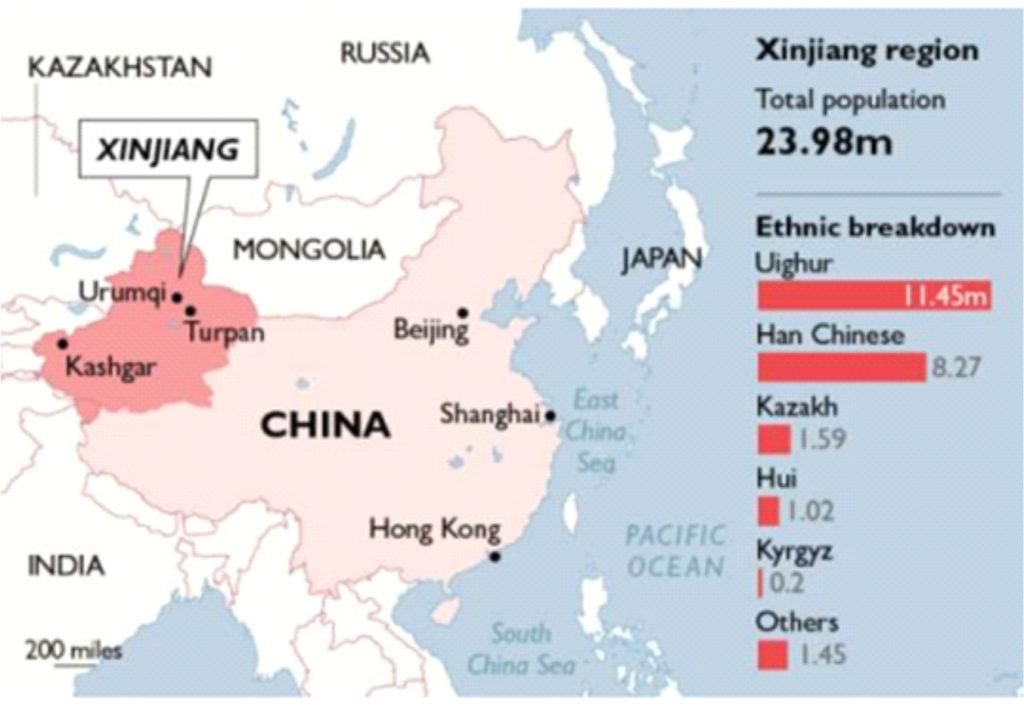COP26: The Agenda for Glasgow
Indian Express
GS 3: Environment and Conservation
Context:
- Amid fresh warnings and new evidence suggesting worsening of the climate crisis, negotiators from around the world are assembling in Glasgow, Scotland, to tie up a few loose ends of the Paris Agreement that have remained unresolved for over two years.
- COP26 (or the 26th Conference of Parties to the UN Framework Convention on Climate Change) is soon to begin in Glasgow with focus on commitment to Net Zero.
About:
- The official agenda of the two-week meeting is to finalise the rules and procedures for implementation of the Paris Agreement, which was supposed to have been completed by 2018.
- Most of the discussions ahead of the meeting have been around an effort to get all countries to commit to a net-zero target by a specific year, somewhere around the mid-century.
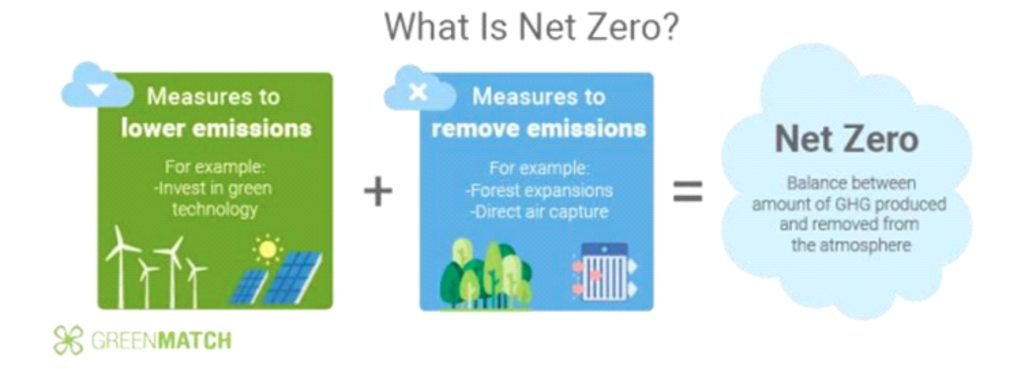
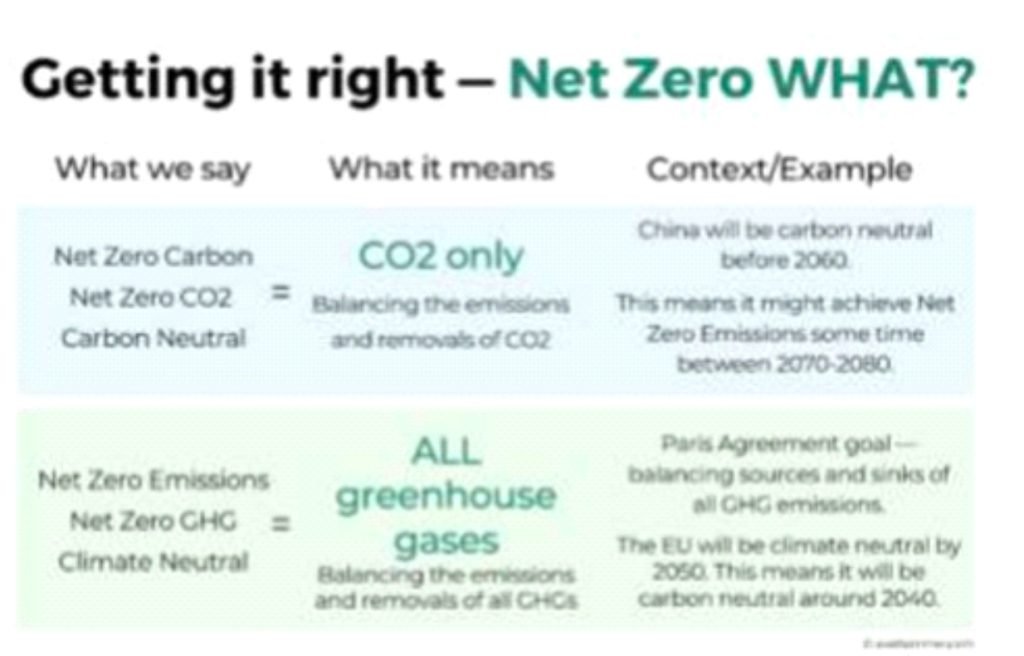
- Carbon neutrality is a state in which a country’s emissions are compensated either by absorption of greenhouse gases, as is done by trees and forests, or by physical removal of carbon dioxide from the atmosphere using futuristic technologies.
- Net-zero is an extremely contentious subject, deeply dividing the developed and developing countries.
The COP meetings:
- The annual climate change meetings are part of an UN-backed process initiated in the early 1990s due to rise in temperature.
- Over the years, these meetings have had remarkable success in bringing climate change to the top of the global agenda, and ensuring that every country has an action plan to tackle climate change.
- This process has also delivered two international agreements — Kyoto Protocol in 1997 and Paris Agreement in 2015 — aimed at cutting down global emissions.
- The outcomes of these meetings, however, have not matched the scale of the response required.
- The original objectives, in terms of the amount of emission reductions and the principles that would govern the international climate architecture, have been diluted severely.
- Most industrialised countries have failed to deliver on their initial promises, not just on emission reductions but also on their commitments to help with finance and technology. As a result, the climate crisis has worsened in the last 20 years, manifesting itself in more frequent and intense extreme weather events.
- Despite the shortcomings, however, these meetings remain the best bet to put the world on a path away from climate disasters.
Stand of India
- India is the largest emitter that still does not have a net-zero commitment, and has said it does not intend to commit immediately.
-
- A study by the think tank Council for Energy Environment and Water projects that for India to achieve a net-zero target by 2070,
- Usage of coal especially for power generation would need to peak by 2040 and drop by 99% between 2040 and 2060.
- The consumption of crude oil across sectors would also need to peak by 2050 and fall substantially by 90% between 2050 and 2070.
- A study by the think tank Council for Energy Environment and Water projects that for India to achieve a net-zero target by 2070,
- India will not budge on demands from developed nations on making good on previous commitments such as
- An annual $100 billion to developing countries for mitigating the impacts of climate change
- Facilitating technology transfer
- Putting in place a tangible market-based mechanism to activate the moribund carbon credit markets.
- Even if India doesn’t announce a net zero target, it may update its Nationally Determined Contributions (NDC)
- That could include higher clean-energy targets or reductions in specific categories of emissions.
- India and the United Kingdom have agreed to strengthen climate initiatives and further their green partnership.
- India would support the UK’s COP Presidency, wishing COP26 to be the COP of action and implementation.
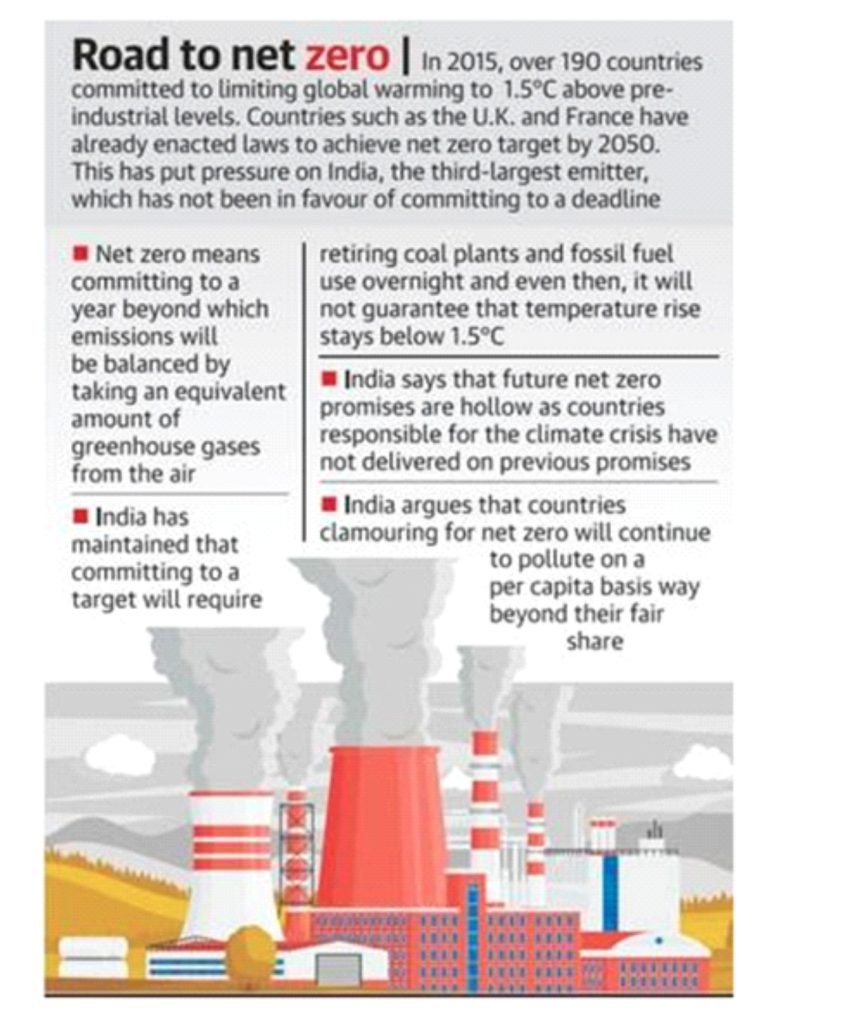
7th Meeting of BRICS
PIB
GS 2: International Organisations and Grouping
Context:
- India as the current BRICS Chair convened the 7th Meeting of BRICS Communications Ministers.
- Minister of State for Communications chaired the 7th meeting of BRICS Communications Ministers through video conferencing.

Discussion among Ministers:
- They discussed the need to work together to develop multi-pronged approaches and reference models for affordable access to communications services and digital technologies for benefitting people, thereby achieving SDGs.
- They encouraged continuous cooperation in ICTs activities in international organizations and multilateral forums such as the International Telecommunications Union etc.
- They recognized the significant role of ICTs in increasing the effectiveness of BRICS countries’ response to the challenges caused by the COVID-19.
- They appreciated the discussion on the “360-degree approach on New Industrial Revolution” in a seminar during Working Group on ICTs Cooperation.
- Ministers adopted the proposal to host the Digital BRICS Forum annually to facilitate sharing of information and knowledge, practices, initiatives, etc. on agreed cooperation areas.
- BRICS Ministers appreciated India’s efforts in keeping up the momentum of BRICS cooperation in ICTs.
- Ministers expressed concerns on the risks and ethical dilemmas related to Artificial Intelligence.
- They encouraged members to work together to deal with such concerns and risks of Artificial Intelligence and its ethical and responsible uses.
- Ministers adopted the Terms of References of Digital BRICS Task Force and supported the advancement in work of the BRICS Partnership on New Industrial Revolution (PartNIR) across several Working Groups meeting in 2021.
Fourth Assembly of the International Solar Alliance
PIB
GS 2: Important International Institutions
Various Agencies & Fora, their Structure & Mandate
Context:
- The fourth general assembly of the International Solar Alliance (ISA), was held virtually.
About:
- It was presided by Union Minister for Power, New and Renewable Energy, Government of India and the President of the ISA Assembly.
- A total of 108 countries participated in the Assembly, including 74 Member Countries and 34 Observer & Prospective Countries, 23 Partner Organizations and 33 Special Invitee Organisations also participated.
Highlights of Discussion:
India
- Solving the problem of energy access is more important than the energy transition.
- The ISA can enable energy access for 800 million people worldwide.
- It is time to get together to make energy access using solar and renewable energy available.
- Developed nations must decide whether economic development should take place through clean energy, or by burning coal and firewood.
- The energy transition is meaningless for those without energy.
- It is time for developed countries to direct the energy transition funds that were committed at previous climate conferences.
- ISA will cover credit guarantees and help in driving green energy investments in these countries.
Global:
-
- Energy access:
- This is an important year to access modern and sustainable energy.
- The ideas shared in the first energy summit convened by the UN General Assembly are also our priorities in the International Solar Alliance.
- Closing the energy access gap by 2030, decarbonising energy systems by increasing solar and wind power capacity and mobilising large scale financing and technological dissemination in renewable energy are key objectives.
- COP26 is working hard to ensure no one is left behind. Thus, international cooperation is at the heart of the conference
- Energy access:
- 2 New Programmes Launched:
- Management of Solar PV panels & battery usage waste & Solar Hydrogen programme.
- Hydrogen initiative:
- It is aimed at enabling the use of solar electricity to produce hydrogen at a more affordable rate than what is available currently (USD 5 per KG), by bringing it down to USD 2 per KG.
- Making hydrogen cost competitive with natural gas presents major challenges for both supply and performance.
- However, bringing down the costs can unlock a cascade of benefits.
- The MSME clusters can replace diesel gensets with hydrogen, which are viable even at today’s solar hydrogen prices.
- The discussions also focused on how ISA’s waste management programme will be pivotal for the growing volume of waste & toxic materials, lack of waste specific legislation, and high cost of waste treatment.
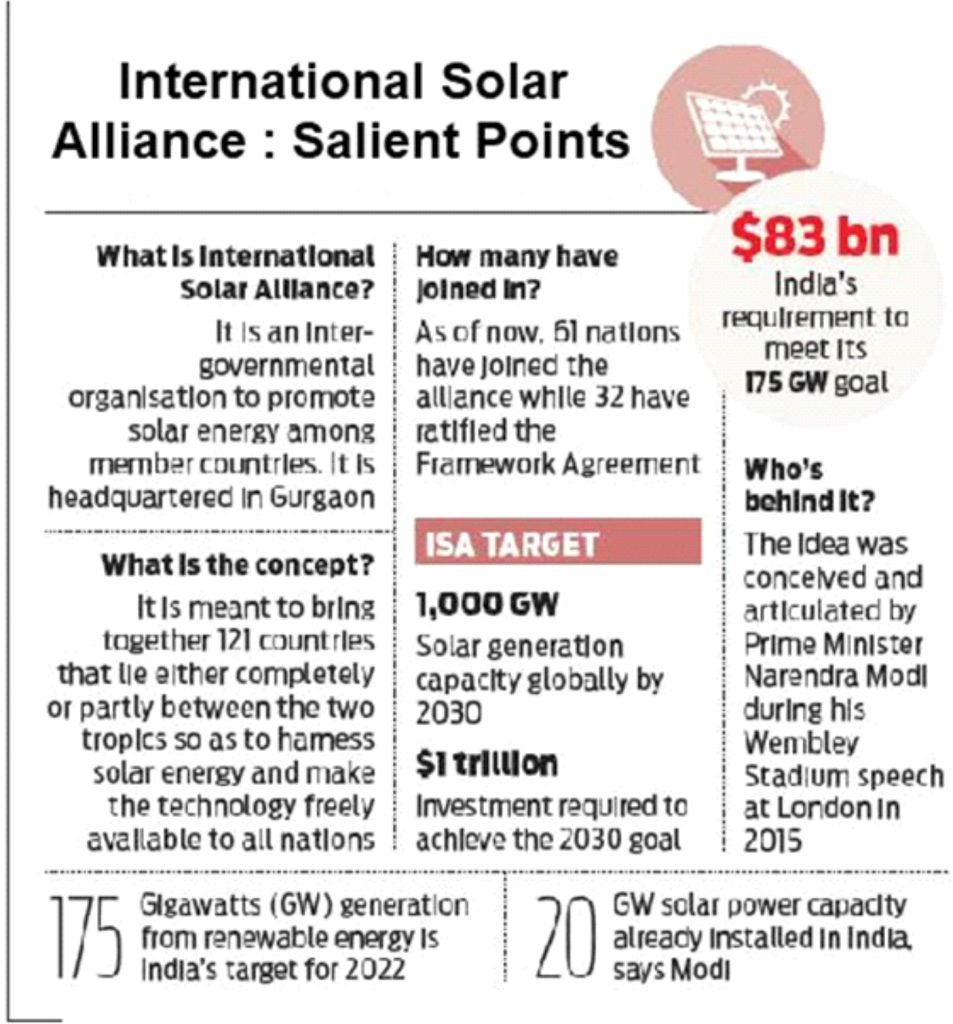
Uighur Rights
The Hindu
GS 2: International
Context:
- Forty-three countries have called on China to “ensure full respect for the rule of law” for the Muslim Uighur community in Xinjiang, in a statement read at the United Nations.
About:
- The declaration, signed by the United States as well as several European and Asian member states and others, accused China of a litany of human rights violations against the Uighurs, including torture, forced sterilisation and forced disappearances.
- All countries call on China to allow immediate, meaningful and unfettered access to Xinjiang for independent observers, including the UN High Commissioner for Human Rights and her office.
- Beijing has long denied accusations of ethnic cleansing against Uighurs and other Muslim Turkic people in Xinjiang, where experts have estimated that more than one million people are incarcerated in camps.
Uighur Muslims:
- Predominantly Muslim minority Turkic ethnic group.
- Origins can be traced to Central and East Asia.
- Speak their own language, similar to Turkish.
- See themselves as culturally and ethnically close to Central Asian nations.
- Considered to be one of the 55 officially recognized ethnic minority communities in China.
- China recognises the community only as a regional minority and rejects that they are an indigenous group.
- Currently, the largest population lives in Xinjiang region.
